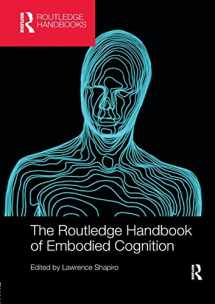
The Routledge Handbook of Embodied Cognition (Routledge Handbooks in Philosophy)
Book details
Summary
Description
Embodied cognition is one of the foremost areas of study and research in philosophy of mind, philosophy of psychology and cognitive science. The Routledge Handbook of Embodied Cognition is an outstanding guide and reference source to the key topics and debates in this exciting subject and essential reading for any student and scholar of philosophy of mind and cognitive science.
Comprising over thirty chapters by a team of international contributors, the Handbook is divided into six parts:
- Historical underpinnings
- Perspectives on embodied cognition
- Applied embodied cognition: perception, language, and reasoning
- Applied embodied cognition: social and moral cognition and emotion
- Applied embodied cognition: memory, attention, and group cognition
- Meta-topics.
The early chapters of the Handbook cover empirical and philosophical foundations of embodied cognition, focusing on Gibsonian and phenomenological approaches. Subsequent chapters cover additional, important themes common to work in embodied cognition, including embedded, extended and enactive cognition as well as chapters on empirical research in perception, language, reasoning, social and moral cognition, emotion, consciousness, memory, and learning and development.


We would LOVE it if you could help us and other readers by reviewing the book
Book review



